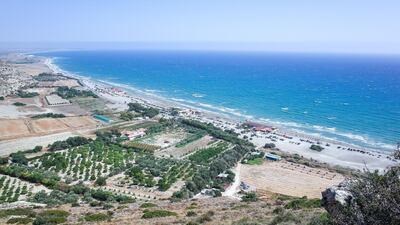Random coronavirus tests will be carried out on a proportion of travellers arriving at Cyprus' airports as an added layer of protection against the virus’ spread.
The measure was announced by government officials on Friday, June 19, a day before the expiration of a requirement that foreign nationals permitted to travel to Cyprus obtain a health certificate declaring them coronavirus-free.
According to the Health Ministry, 22 countries are now considered low-risk, including Greece, Germany, Austria, Bulgaria, South Korea and Australia, while another 12, including France, Italy, Belgium, Spain and Lebanon, are in a higher-risk category.
Cyprus's two biggest tourist markets, the UK and Russia, have yet to be included in either category.
Cyprus’ deputy government spokesman Panayiotis Sentonas said the testing measure was taken on the recommendation of an advisory body of medical experts “so as not to risk the positive epidemiological picture” the country has built over the last few months.
Cyprus has managed a low coronavirus infection rate thanks to a nearly three-month lockdown imposed in mid-March that included a commercial flight ban and a stay-at-home order.
The country is keen to restart is vital tourism sector that directly accounts for 13 per cent of its economy, but wants to avoid imported virus flare-ups that could tarnish its image.
Up to 500 flights a week expected
Health Minister Constantinos Ioannou said health officials at the airports are aiming to randomly test 10 to 15 per cent of 1,500 passengers who are estimated to arrive daily over the next few weeks.
Ioannou said random virus tests will also be conducted on passengers arriving from the 12 higher-risk countries, including Lebanon, who will still need a health certificate declaring them virus-free.
Cyprus has reported 985 total coronavirus cases and 19 deaths.
Transport Minister Yiannis Karousos told state radio that he expected the number of flights to increase to around 500 per week in July.
But the government expects visitor numbers to be down by 70 per cent this year due to the pandemic, after counting almost four million arrivals in 2019.
With additional reporting from AFP

